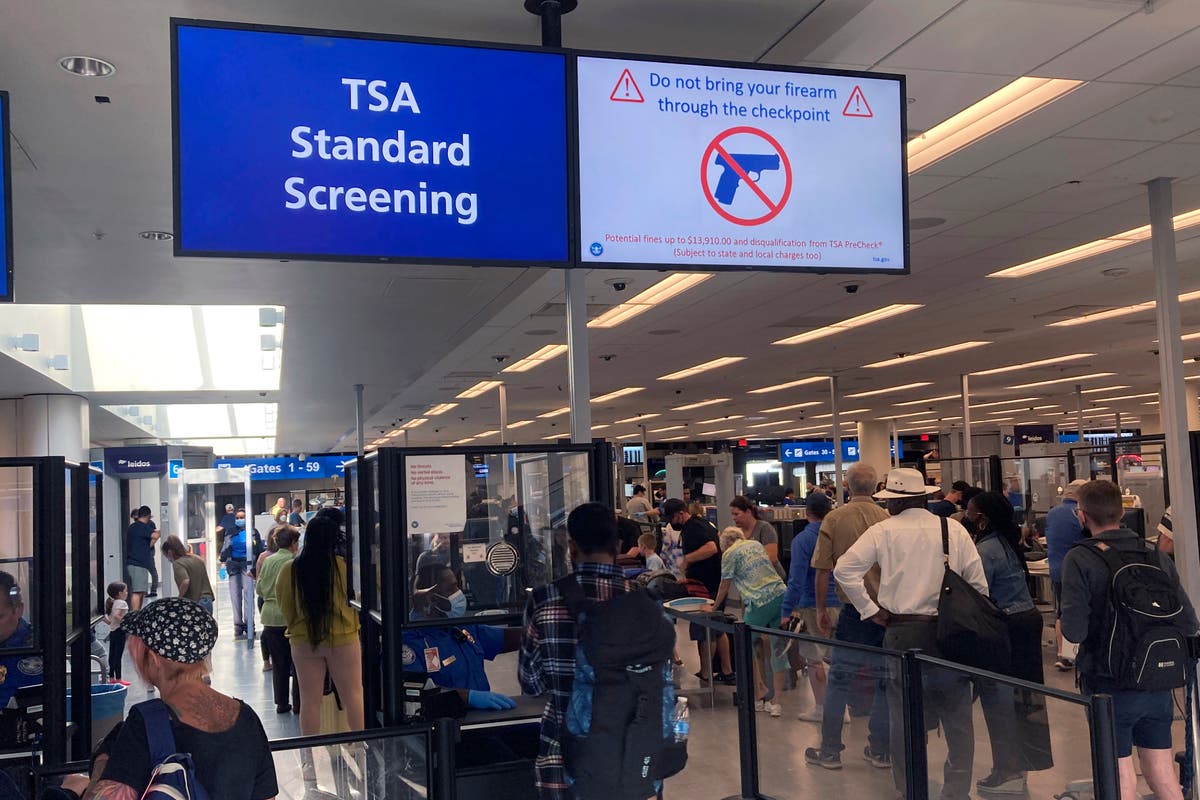This website uses cookies so that we can provide you with the best user experience possible. Cookie information is stored in your browser and performs functions such as recognising you when you return to our website and helping our team to understand which sections of the website you find most interesting and useful.

The Transportation Security Administration is raising the fine for people caught with a gun in their carry-on bag after intercepting a record number of firearms at security checkpoints this year.
The TSA said Friday it’s raising the maximum fine to $14,950. Previously it was $13,910.
TSA officers have found 6,301 firearms in carry-on bags so far this year, surpassing the previous record of 5,972 detected in 2021. The numbers have been increasing steadily over the last decade; in 2012, 1,549 firearms were detected at security checkpoints.
Eighty-eight percent of the guns found this year were loaded, the TSA said.
Firearm possession laws vary by location, but guns are never allowed in carry-on bags at any airport security checkpoint, even if a passenger has a concealed-weapon permit. Passengers transporting firearms must do so in a locked case in checked baggage. They also must declare them to the airline, the TSA said.
At a congressional hearing earlier this year, some lawmakers and airport administrators called for higher fines, gun safety classes for violators and other measures. They said the maximum fines were rarely imposed and clearly weren't working as a deterrent.
But other lawmakers said most of the passengers who get caught simply forgot they were carrying a gun, and higher fines won't stop that problem.
When the TSA finds a gun, it generally checks to see if it was stolen or involved in a previous crime. The agency may also confiscate the gun.
In addition to the fine __ an amount determined by the TSA based on the circumstances of each case __ the TSA will revoke PreCheck eligibility for at least five years for anyone caught with a gun at a security checkpoint. Passengers may also be arrested for a firearms violation depending on the state or local laws in the airport’s location.



 Africana55 Radio
Africana55 Radio 
